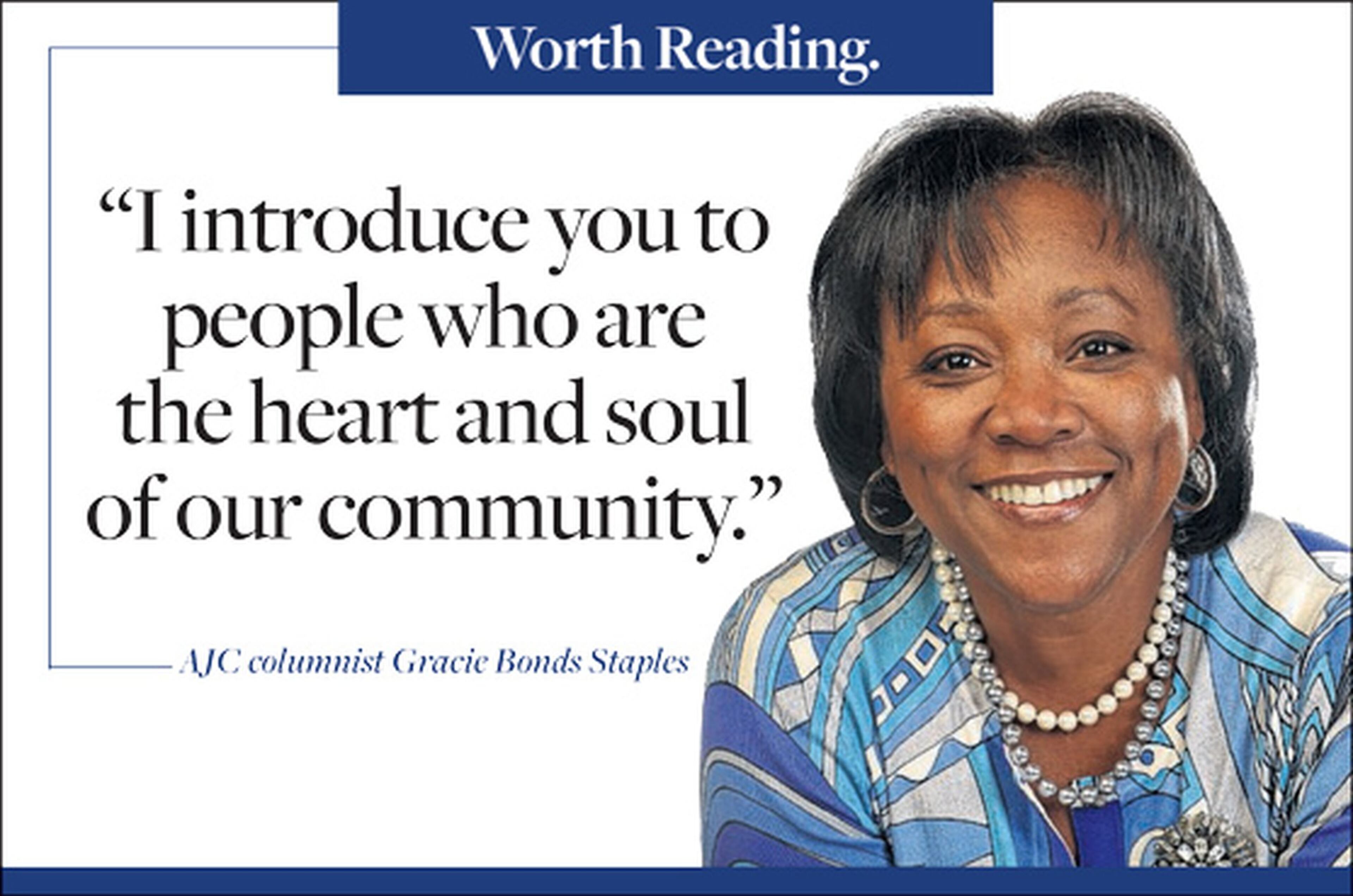This Life: #MeToo movement inspires Marietta mom to seek justice

For the longest time, Empress Rellise accepted other people’s impressions of her. She was, in their eyes, a promiscuous whore, a nymphomaniac.
The problem with that is she never had a choice in the matter. No 5-year-old girl, or boy for that matter, ever does.
Most 5-year-olds know their address and phone number. They can recognize most letters of the alphabet and they can count. But they don’t just decide one day to have sex in the back seat of their father’s car and with their father’s friend.
If the #MeToo movement has taught us anything, it is this: Children are ill-equipped to process such a crime, let alone report it. Empress Rellise was no different and she has suffered every day since.
At least now at age 25, she’s starting to try to work her way out of the darkness and seek justice.
It might not have been, had it not been for those two simple words, “Me too,” that began appearing late last year on Facebook, Instagram and Twitter feeds.
The hashtag, by activist Tarana Burke and popularized by actress Alyssa Milano, spread like a fire as women across the country and around the world began to share their stories of sexual harassment and assault.
RELATED | Who is Tarana Burke? Meet the woman who started the Me Too movement a decade ago
“If all the women who have been sexually harassed or assaulted wrote ‘Me Too’ as a status, we might give people a sense of the magnitude of the problem,” Milano wrote in a tweet that went viral.
Rellise took notice.
“I saw all these women coming forward and thought if they could come forward after 20 years, maybe I could, too,” she said. “I’m not a celebrity. I’m just a regular person. I went through it, too.”
Her story began at age 5 in her father’s car, but it would not end until well into her teens.
After that first encounter, she said, she found herself doing to other children her age what had been done to her.
“As a matter of fact, it seemed like all the kids were doing it with each other,” the Marietta mother of three said. “When caught, they were punished, but no one cared to find out who taught that to them.”
On Oct. 31, 2006, at the age of 13, she was drugged and then gang-raped. When she shared her truth with a man she trusted later that same day, he raped her, too.
“I don’t know why you thought you were going to get a free ride home,” he told her after.
A relative who happened to be the man’s girlfriend tape-recorded Empress recounting the tale and then played it for her father.
“He thought I was just having sex with these guys,” she said. “I was grounded and I left it at that. I never talked about it again. I still haven’t fully grasped it as rape. I don’t even know how to explain it or what to call it. I was 13 and I knew and trusted these people.”
The next year, she and her father moved here from Antigua, where the abuse happened.
But nothing really changed, and by 15, she was pregnant. Family members believed she was just a rebellious teen.
Rellise began to see herself the way they did.
“They said I was a whore,” she said. “I decided that I was a nymphomaniac.”
RELATED | Why Women’s March hat moniker strikes me wrong
One in 4 girls and 1 in 6 boys experience some form of sexual abuse before the age of 18, and 80 to 90 percent of prostituted youths have a history of sexual or physical abuse, according to Marta Martinez Hasty, a licensed therapist and vice president of the board of directors at Kristi House, a Miami-based nonprofit dedicated to healing and eradicating childhood sexual abuse.
That abuse can and often does lead to a whole host of problems, including promiscuity, Hasty said, because the behaviors are considered normal and become a conditioned response, depending on the severity.
“A girl having been sexually abused at the age of 5 and engaging in overly sexualized behaviors in their adolescent and adult years is sadly something that often happens,” she said. “Sexual abuse typically does not occur one time and is a manipulation of the child’s or adolescent’s trust and emotions.

“Most children and adolescents don’t understand that they have been sexually abused, as most sexual abuse takes place by a person that they trust and that their family trusts,” Hasty said. “Usually, it’s when the child or adolescent becomes educated on abuse at school or by their parent that they realize they have actually been victims.”
Children and adolescents, she said, are “groomed” by their abusers, meaning that they start with smaller, more innocent-type touching to allow the child to feel more comfortable with sexual touching and behaviors, then it leads to more advanced touching, exposure of sexual material and possible intercourse.
Sexual knowledge that seems too advanced for a child’s age, consistently touching or rubbing their genital area in public or in private, imitating intercourse, or trying to engage children in sexualized play and taking clothes off are all signs of abuse.
In addition, Hasty said, adolescents may show signs of eating disorders as well as promiscuity beginning at a young age.
“Promiscuity could also be a way to manage anxiety and stress as a form of release,” she said.
RELATED | Is sexual harassment only about men behaving badly?
Some additional signs and behaviors are dramatic changes in sleep patterns, running away, cutting or causing pain to themselves, attempt or talk of suicide, loss of interest in activities the child once enjoyed, use of drugs or alcohol and more.
In 2014, after several suicide attempts, Rellise was diagnosed with bipolar disorder, a mental illness her doctor said was triggered by years of abuse.
Nothing helped, not until she started writing it all down, putting it out there in a small memoir titled “Monsters in Paradise: A Short Story of Child Abuse, Victim Shaming and Mental Illness in the Americas.”

Since publishing her story, Rellise said dozens of women have come forward about the shame they feel from the abuse they suffered.
“There are so many girls being promiscuous and being shamed for something that happened to them,” she said. “But we’re the real victims. What many people do not know is that these teen girls are being preyed on by adult men who groom them into trusting them.”
Rellise is seeking legal assistance to finally bring charges against one of the men who abused her while growing up in Antigua. “It’s already been 10 years, but even if they are not prosecuted, I just want everyone to know what they have done,” she said. “I know that they are still doing it.”
Since producer Harvey Weinstein became the tipping point for the MeToo movement, dozens of menfrom Charlie Rose to Matt Lauer to Mario Batali have toppled like bowling pins over sexual misconduct accounts sweeping them out corporate doors.
That’s all fine and good, but what about other less famous men who are equally guilty?
To date, Rellise said the onus has been on women to share their stories, but she fears little will change until everyone starts to take victims like her seriously, and the perpetrators are brought to justice.
#MeToo.


